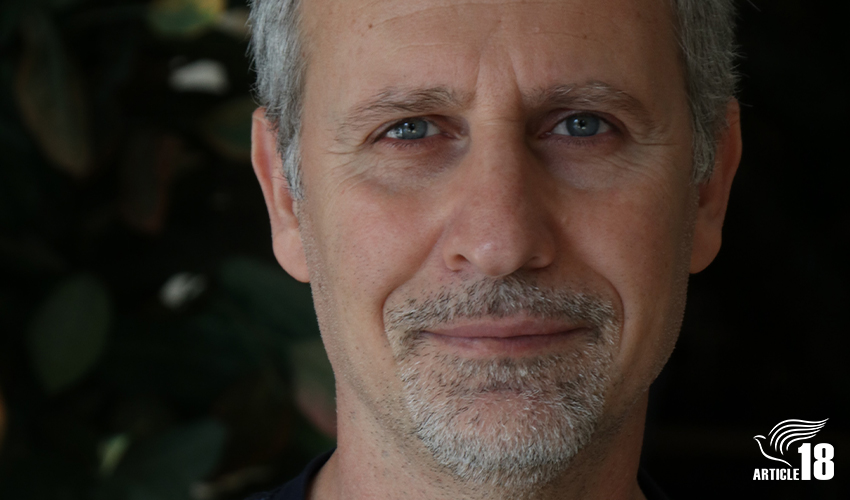Increasing number of Iranian Christians 'faceless victims' of the ayatollahs
Victims often do not report for fear of further harassment. In 2023, at least 166 arrests were made, but only a fraction were made public. Pressure and repression continue even after release. In Turkey, an Iranian Christian who fled in 2013 risks deportation and, in case of repatriation, imprisonment.
Tehran (AsiaNews) - In Iran there is an increase in the number of Christians who are the "faceless victims" of arrests and violations of religious freedom perpetrated by the Islamic Republic, often out of "fear" that publicising their case could lead to even worse suffering.
This is what Article18, a website specialised in documenting Tehran's repressions against religious minorities, especially Christians, denounces in its annual report entitled "Faceless victims: violations of rights against Christians in Iran" published today (click here to read).
The study was carried out with the collaboration of other leading NGOs including Open Doors, Christian Solidarity Worldwide (CSW) and Middle East Concern. In the face of a small increase in the number of arrested Christians "amounting to 166 in 2023 compared to 134 in 2022", more and more, the authors of the document emphasise, are those "without a name and a face" who end up in the crosshairs of justice.
The report released today confirms that there is a "clear regression" in the situation regarding religious freedom in Iran, in line with the authorities' increasing repression linked to the protests that broke out following the death of Mahsa Amini at the hands of the morality police.
A fact that also emerged in the 2023 report of the US Commission on International Religious Freedom, published last May, which called for the Islamic Republic to be reclassified as a "nation of particular concern (CPC)" for its "systematic and egregious violations".
The release date, 19 February, coincides with the killing of Rev Arastoo Sayyah, murdered in his office eight days into the 1979 Islamic Revolution, the first in a long series of bloody events against Christians, particularly converts, that continues to this day. In 2023, the study says, there were "waves of arrests" but of these only "a handful were reported before June", then "over 100 in the following three months before a further wave at Christmas".
"However, very few of those arrested," the report continues, "agreed to make their cases public, leading to an increasing number of faceless victims. By the end of 2023, at least 17 of the Christians arrested during the summer had received prison sentences of between three months and five years or non-custodial punishments such as fines, floggings and, in one case, the obligation to dig graves."
But only two of those arrested in the summer have been identified: they are two Armenians, Elisa Shahverdian and her husband Hakop Gochumyan, the latter still imprisoned in Evin.
Another trend in 2023 is the repression of those who distribute Bibles, as 'more than a third of the arrests' concern people 'in possession of multiple copies'. Meanwhile, at least nine Christians have been pardoned and released from prison, although 'most of them' were already near the end of their sentences, with convictions due to the 'peaceful practice of their faith' and which 'therefore should not even have been issued in the first place'.
The report also includes a section on specific abuses of the International Covenant on Civil and Political Rights (ICCPR) against Iran's Christian community, with at least 11 types of violations: freedom of religion or belief, opinion and expression, freedom of peaceful assembly and protection from arbitrary arrest, detention and torture.
Finally, the report contains a special section of analysis explaining how pressure on individuals and their families continues even after release from prison, with continuous monitoring and harassment, denial of employment or education, new charges and reopening of dismissed cases.
These are all examples, the activist NGOs explain, of how Tehran can make it "increasingly difficult for Christians to remain in Iran". "Many flee," the report concludes, "only to find a new set of challenges awaiting them as refugees, as shown in the 2023 document on the situation of Iranian Christians seeking international protection in Turkey.
Evidence of the abuse and threats against Christians who have migrated to Turkey is what is seen in teh recent treatment of 56-year-old Mojtaba Keshavarz Ahmadi (in the photo), who migrated in 2013 from Iran to Turkey to escape imprisonment.
Today he risks being deported by the authorities in Ankara to his homeland, the victim of a new repression. Local sources report that the Turkish immigration authorities ordered his arrest on 29 January and transferred him to a detention centre in the west of the country where he is still being held.
Mojtaba was accused of having left his home town, Düzce, near Istanbul, without authorisation, a charge he emphatically rejects to the sender and for which the Turkish authorities have provided no evidence.
He is now detained in the Ayvacık Geri Gönderme Merkezi centre, almost six hours from Düzce, and his identity card has been confiscated, pending deportation and repatriation despite the fact that he has been living in Turkey permanently for a decade and has applied - never examined - for refugee status. If returned, he faces a three-year sentence for practising the Christian faith.
05/02/2022 09:48
26/07/2024 12:31
08/07/2024 13:57








.png)










